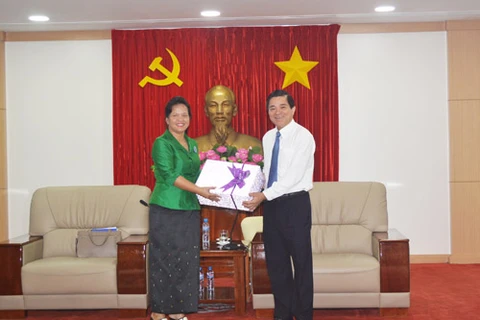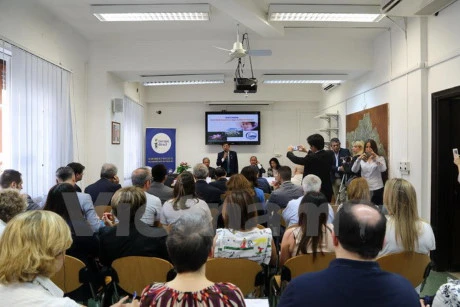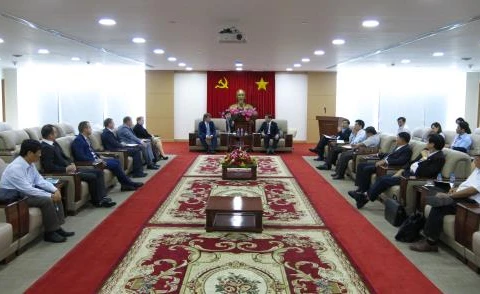Oryol (VNA) – Vietnam’s southern province of Binh Duong and Oryol Oblast, a federal subject of Russia, signed a memorandum of understanding (MoU) on setting up multi-faceted cooperation in Oryol city on July 7.
Vice Chairman of the Binh Duong People’s Committee Mai Hung Dung said the document on cooperation, including in economy-trade, science-technology and culture, is a foundation for the two sides to enhance their friendship and mutual understanding. It is especially meaningful as it was signed shortly after President Tran Dai Quang’s recent official visit to Russia during which the two countries’ leaders stressed the resolve to boost bilateral trade to 10 billion USD in 2020.
He introduced his province’s potential to Russian officials, noting that it is one of the five localities attracting most foreign investment in Vietnam. It has so far been home to nearly 3,000 foreign invested projects with total capital of over 27 billion USD from 59 countries and territories.
The Governor of Oryol Oblast, Vadym Potomsky, affirmed that reinforcing the Vietnam-Russia strategic partnership is the determination of both countries. He valued Vietnam’s development and growing economic and political influence.
[Binh Duong continues improving business climate]
Vietnam is the first country to ink a free trade agreement with the Eurasian Economic Union, which is led by Russia. Therefore, it is also the first to have favourable access to the Russian market and partner countries of Russia.
He added with favourable geographical location, Oryol Oblast is able to help deliver Vietnamese goods to the centre of Russia.
Vice Chairman Dung told Vietnam News Agency that Binh Duong will promote export to Oryol Oblast in the near future. While local businesses showed their interest in such products as cashew and coffee which are the strength of Binh Duong, businesses of the Vietnamese province want to buy Russia’s technologies, such as oil refining technology.
Binh Duong, with the most dynamic growth in Vietnam, has big demand for skilled personnel and high technology. Meanwhile, the Russian side is also able to ensure cooperation in science-technology and training of students, lecturers and researchers, he added.-VNA
VNA
























